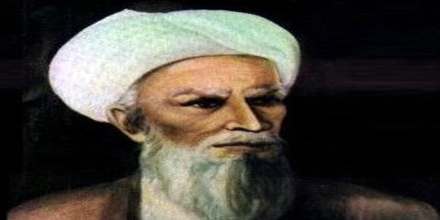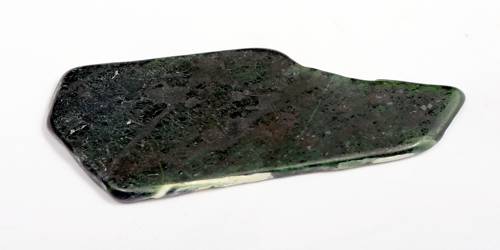Muhammad ibn Zakariya al-Razi – Muslim philosophers (854 CE – 925 or 932 CE)
Full Name: Abū Bakr Muhammad ibn Zakariyyā al-Rāzī (ابوبكر محمّد زکرياى رازى)
Date of birth: 854 CE
Place of birth: Rey (near Tehran), Iran
Date of death: 932 or 925 CE
Place of death: Rey, Iran
Era: Islamic golden age
Region: philosophy
School: Persian science, medicine
Main interests: Chemistry, medicine, philosophy
Notable ideas: The first to produce acids such as sulfuric acid, writing up limited or extensive notes on diseases such as smallpox and chickenpox, a pioneer in ophthalmology, author of the first book on pediatrics, making leading contributions in inorganic and organic chemistry, also the author of several philosophical works.
Early Life
Al-Rāzī, in full Abū Bakr Muḥammad ibn Zakariyyāʾ al-Rāzī, Latin Rhazes was born on c. 854, in Rayy, Persia (now in Iran). He was a celebrated alchemist and Muslim philosopher who is also considered to have been the greatest physician of the Islamic world.
He was the leading scholar of the early Islamic world. He was a Persian polymath, physician, alchemist, philosopher, and important figure in the history of medicine.
A comprehensive thinker, Razi made fundamental and enduring contributions to various fields, which he recorded in over 200 manuscripts, and is particularly remembered for numerous advances in medicine through his observations and discoveries. An early proponent of experimental medicine, he became a successful doctor, and served as chief physician of Baghdad and Rey hospitals. As a teacher of medicine, he attracted students of all backgrounds and interests and was said to be compassionate and devoted to the service of his patients, whether rich or poor.
He was among the first to use humorism to distinguish one contagious disease from another, and wrote a pioneering book about smallpox and measles providing clinical characterization of the diseases. He also discovered numerous compounds and chemicals including Alcohol, kerosene, among others.
Through translation, his medical works and ideas became known among medieval European practitioners and profoundly influenced medical education in the Latin West. Some volumes of his work Al-Mansuri, namely “On Surgery” and “A General Book on Therapy”, became part of the medical curriculum in Western universities. Edward Granville Browne considers him as “probably the greatest and most original of all the Muslim physicians, and one of the most prolific as an author”, and has been described as a doctor’s doctor, the father of pediatrics, and a pioneer of ophthalmology.
His stature is comparable only to that of Ibn Sina a century later. Influenced by Hippocrates and classical Greek medicine, Al Razi wrote numerous books on a range of medical and scientific subjects. The Al-Mansuri and Al-Hawi, his encyclopedic reviews of medicine, were translated into several languages and became a standard text for Islamic and European medical students for centuries.
He spent the last years of his life in his native Rey suffering from glaucoma. His eye affliction started with cataracts and ended in total blindness. The cause of his blindness is uncertain. One account mentioned by Ibn Juljul attributed the cause to a blow to his head by his patron, Mansur ibn Ishaq, for failing to provide proof for his alchemy theories; while Abulfaraj and Casiri claimed that the cause was a diet of beans only. Allegedly, he was approached by a physician offering an ointment to cure his blindness. Al-Razi then asked him how many layers does the eye contain and when he was unable to receive an answer, he declined the treatment stating “my eyes will not be treated by one who does not know the basics of its anatomy”.
The lectures of Razi attracted many students. As Ibn al-Nadim relates in Fihrist, Razi was considered a shaikh, an honorary title given to one entitled to teach and surrounded by several circles of students. When someone raised a question, it was passed on to students of the ‘first circle’; if they did not know the answer, it was passed on to those of the ‘second circle’, and so on. When all students would fail to answer, Razi himself would consider the query. Razi was a generous person by nature, with a considerate attitude towards his patients. He was charitable to the poor, treated them without payment in any form, and wrote for them a treatise Man La Yaḥḍuruhu al-Ṭabīb, or Who has no Physician to Attend Him, with medical advice. One former pupil from Tabaristan came to look after him, but as al-Biruni wrote, Razi rewarded him for his intentions and sent him back home, proclaiming that his final days were approaching. According to Biruni, Razi died in Rey in 925 sixty years of age. Biruni, who considered Razi as his mentor, among the first penned a short biography of Razi including a bibliography of his numerous works.
Career
On a professional level, Razi introduced many practical, progressive, medical and psychological ideas. He attacked charlatans and fake doctors who roamed the cities and countryside selling their nostrums and “cures”. At the same time, he warned that even highly educated doctors did not have the answers to all medical problems and could not cure all sicknesses or heal every disease, which was humanly speaking impossible. To become more useful in their services and truer to their calling, Razi advised practitioners to keep up with advanced knowledge by continually studying medical books and exposing themselves to new information. He made a distinction between curable and incurable diseases. Pertaining to the latter, he commented that in the case of advanced cases of cancer and leprosy the physician should not be blamed when he could not cure them. To add a humorous note, Razi felt great pity for physicians who took care for the well being of princes, nobility, and women, because they did not obey the doctor’s orders to restrict their diet or get medical treatment, thus making it most difficult being their physician.
The metaphysical doctrine of Razi derives from the theory of the “five eternals”, according to which the world is produced out of an interaction between God and four other eternal principles (soul, matter, time, and place). He accepted a pre-socratic type of atomism of the bodies, and for that he differed from both the falasifa and the mutakallimun. While he was influenced by Plato and the medical writers, mainly Galen, he rejected taqlid and thus expressed criticism about some of their views. This is evident from the title of one of his works, Doubts about Galen.
“In the “Philosophical Biography”, as seen above, he defended his personal and philosophical life style. In this work he laid out a framework based on the idea that there is life after death full of happiness, not suffering. Rather than being self-indulgent, man should pursue knowledge, utilise his intellect and apply justice in his life.
According to Al-Razi: “This is what our merciful Creator wants. The One to whom we pray for reward and whose punishment we fear.”
He did not implicate that the soul could avoid distress due to his fear of death. He simply states that this psychological state cannot be avoided completely unless the individual is convinced that, after death, the soul will lead a better life. This requires a thorough study of esoteric doctrines and/or religions. He focuses on the opinion of some people who think that the soul perishes when the body dies. Death is inevitable; therefore one should not pre-occupy the mind with it, because any person who continuously thinks about death will become distressed and think as if he is dying when he continuously ponders on that subject.
Razi’s book: al-Judari wa al-Hasbah (On Smallpox and Measles) was the first book describing smallpox and measles as distinct diseases. It was translated more than a dozen times into Latin and other European languages. Its lack of dogmatism and its Hippocratic reliance on clinical observation show Razi’s medical methods.
Razi compared the outcome of patients with meningitis treated with blood-letting with the outcome of those treated without it to see if blood-letting could help.
Razi contributed in many ways to the early practice of pharmacy by compiling texts, in which he introduces the use of ‘mercurial ointments’ and his development of apparatus such as mortars, flasks, spatulas and phials, which were used in pharmacies until the early twentieth century.
A medical adviser for the general public (Man la Yahduruhu Al-Tabib) (من لا يحضره الطبيب)
Razi was possibly the first Persian doctor to deliberately write a home medical manual (remedial) directed at the general public. He dedicated it to the poor, the traveler, and the ordinary citizen who could consult it for treatment of common ailments when a doctor was not available. This book, of course, is of special interest to the history of pharmacy since similar books were very popular until the 20th century. Razi described in its 36 chapters, diets and drug components that can be found in either an apothecary, a market place, in well-equipped kitchens, or and in military camps. Thus, every intelligent person could follow its instructions and prepare the proper recipes with good results.
Razi’s interest in alchemy and his strong belief in the possibility of transmutation of lesser metals to silver and gold was attested half a century after his death by Ibn an-Nadim’s book (The Philosophers Stone-Lapis Philosophorum in Latin). Nadim attributed a series of twelve books to Razi, plus an additional seven, including his refutation to al-Kindi’s denial of the validity of alchemy. Al-Kindi (801–873 CE) had been appointed by the Abbasid Caliph Ma’mum founder of Baghdad, to ‘the House of Wisdom’ in that city, he was a philosopher and an opponent of alchemy. Razi’s two best-known alchemical texts, which largely superseded his earlier ones: al-Asrar (الاسرار “The Secrets”), and Sirr al-Asrar (سر الاسرار “The Secret of Secrets”), which incorporates much of the previous work.
Razi developed several chemical instruments that remain in use to this day. He is known to have perfected methods of distillation to gain alcohol and extraction. ar-Razi dismissed the idea of potions and dispensed with magic, meaning the reliance on symbols as causes. Although Razi does not reject the idea that miracles exist, in the sense of unexplained phenomena in nature, his alchemical stockroom was enriched with products of Persian mining and manufacturing, even with sal ammoniac, a Chinese discovery. He relied predominantly on the concept of ‘dominant’ forms or essences, which is the Neoplatonic conception of causality rather than an intellectual approach or a mechanical one. Razi’s alchemy brings forward such empiric qualities as salinity and inflammability -the latter associated to ‘oiliness’ and ‘sulphurousness’. These properties are not readily explained by the traditional composition of the elements such as: fire, water, earth and air, as al-óhazali and others after him were quick to note, influenced by critical thoughts such as Razi had.
He was a keen experimenter and observer. As director of a large hospital in Baghdad and physician to the royal court, he engaged in medicine on a practical level and these experiences permeate his writings. He saw the importance of recording a patient’s case history and made clinical notes about the progress and symptoms of different illnesses, including his own.
One of his most innovative assertions related to measles and smallpox. Previously they were lumped together simply as a disease that caused rashes, but through careful observation al-Razi recorded the differences in appearance of the skin inflammations as well as the accompanying physical symptoms, and proposed correctly that they were indeed two distinct diseases.
Personal Life
Razi was born in the city of Rey situated on the Great Silk Road that for centuries facilitated trade and cultural exchanges between East and West. His name Razi in Persian means “from the city of Rey”, an ancient town called Ragha in old Persian or Ragâ in old Bactrian. It is located on the southern slopes of the Alborz Range situated near Tehran, Iran.
In his youth, Razi moved to Baghdad where he studied and practiced at the local bimaristan (hospital). Later, he was invited back to Rey by Mansur ibn Ishaq, then the governor of Rey, and became a bimaristan’s head. He dedicated two books on medicine to Mansur ibn Ishaq, The Spiritual Physic and Al-Mansūrī on Medicine. Because of his newly acquired popularity as physician, Razi was invited to Baghdad where he assumed the responsibilities of a director in a new hospital named after its founder al-Muʿtaḍid (d. 902 CE).
Death
He spent the last years of his life in his native Rey suffering from glaucoma. According to Biruni, Razi died in Rey in 925 sixty years of age. Biruni, who considered Razi as his mentor, among the first penned a short biography of Razi including a bibliography of his numerous works.
After his death, his fame spread beyond the Middle East to Medieval Europe, and lived on. In an undated catalog of the library at Peterborough Abbey, most likely from the 14th century, Razi is listed as a part author of ten books on medicine.
Honours
The modern-day Razi Institute in Tehran and Razi University in Kermanshah were named after him. A ‘Razi Day’ (‘Pharmacy Day’) is commemorated in Iran every 27 August.
In June 2009, Iran donated a “Scholars Pavilion” or Chartagi to the United Nations Office in Vienna, now placed in the central Memorial Plaza of the Vienna International Center. The pavilion features the statues of Razi, Avicenna, Abu Rayhan Biruni, and Omar Khayyam.
















